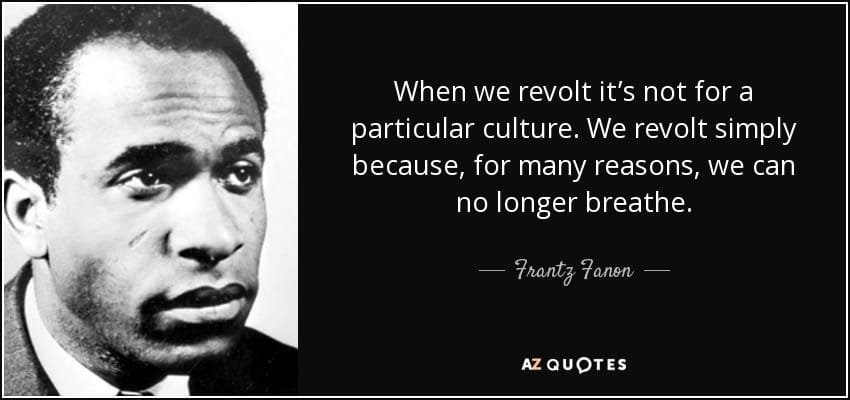Howdy, this is UniScoops! We’re your brain’s personal trainer, no sweat required.
So, without further ado…
Here’s a taste of what we’re serving today:
What’s the difference between Colonialism, Anti-Colonialism, and Post-Colonialism? 🌐
PLUS: Antarctic Marine Worms, Plant Blindness, and Black Holes.
GEOGRAPHY
What’s the difference between Colonialism, Anti-Colonialism, and Post-Colonialism? 🌐
In the UK, we often assume that colonialism is something of the past that no longer affects us. Many people argue that colonialism continues in a different guise today, and that settler colonialism - which is when settlers never left and instead tried to wipe out the Indigenous population, like in the US and Canada - has significant contemporary effects. Here, we unpack the similarities and differences between colonialism, anti-colonialism and post-colonialism.
💡 Things to consider
Colonialism was about holistic change and destruction on a massive scale: According to Jo Sharp (2009), colonialism wasn’t just about exploiting the natural resources of a country, but also about building settlements, infrastructure, and establishing industry too. Hospitals and schools were also vital during the colonial era, since doctors and teachers became agents of the state, and were used to make the population compliant (e.g: by teaching them that the British were superior to themselves, or providing them with free vaccines).
Anti-colonialism uses many different tactics to resist colonial domination: Anti-colonialism is all about fighting back against colonial domination. Sometimes this is in small or everyday ways, and sometimes it involves massive movements and online organising (e.g., Rhodes Must Fall). Frantz Fanon spoke of the colonisation of the mind, meaning that formerly-colonised peoples still see themselves as inferior, or ‘absorb the ways of the coloniser’ (e.g., by oppressing fellow formerly-colonised people, even when colonialists have left their country). In this sense, anti-colonialism refers to specific historical events and people like Fanon, as well as a set of ideas and practices to resist colonial logics (e.g., civil disobedience).

Postcolonialism = culture + power + representations: Postcolonialism isn’t just the period of time ‘after’ colonialism, or following a country’s independence. It’s also a body of work, which has been really influential across lots of disciplines, including geography, psychology, history, politics, English, and more. A key task of postcolonialism is reclaiming the voices and ideas which are ‘lost’ to colonialism - listening to the experiences and beliefs of the formerly-colonised, in order to challenge western/colonial ways of thinking, which tend to divide the world up into east versus west, ignorant versus enlightened, and civilised versus savage.

Postcolonialism emerged from writers like Edward Said (1978) in the mid-20th Century, who argued that colonialism destroyed the traditions, languages, and lifestyles of Indigenous peoples, and used ‘culture’ to control people. So, postcolonialism argues that we need to deconstruct texts, read them differently, and look for alternative accounts of life in the Global South.
🔎 Find out more

🍒 The cherry on top
🪱 Antarctic Marine Worms: How do species survive in the most extreme of climates? Whilst some of us need 10 blankets and a hot water bottle to go to sleep, researchers found that Antarctic marine worms stay alive thanks to some specialised bacteria living inside them that make antifreeze proteins. A fascinating read if you are interested in Biology.
🌷 Plant Blindness: This article looks at whether we are overlooking signs of plant intelligence. Perhaps those slow movements and silent communication are a different kind of mind at work. Could recognising this unlock a deeper understanding of the natural world, and maybe even a new appreciation for the quiet wisdom of our leafy neighbours? Have a read if you’re into Philosophy or Psychology!
🌌 Black Holes: Explained by the legendary Brian Cox, this video addresses not only what black holes actually are, but what secrets they hold about the universe. He breaks down some of the key theories on the topic, and what this means for our understanding of the universe. Make sure to watch if you are interested in Physics.

👀 Keep your eyes peeled for…
24th June:
25th June:
26th June:
27th June:
28th June:

🗳️ Poll
How was today's email?
That’s it for this week! We’d like to thank this week’s writer: Eleanor Luxton (Geography).
💚 Like UniScoops?
Forward this edition to someone who’d love to read it for extra kudos!
📢 Want to tell us something?
Reply to this email to tell us what you think about UniScoops, or to give us any suggestions on what you’d like to see.
🧐 New to UniScoops?
Get your weekly fix of academia with our fun, thought-provoking newsletter. No jargon, no fluff, just the good stuff. Subscribe today.

